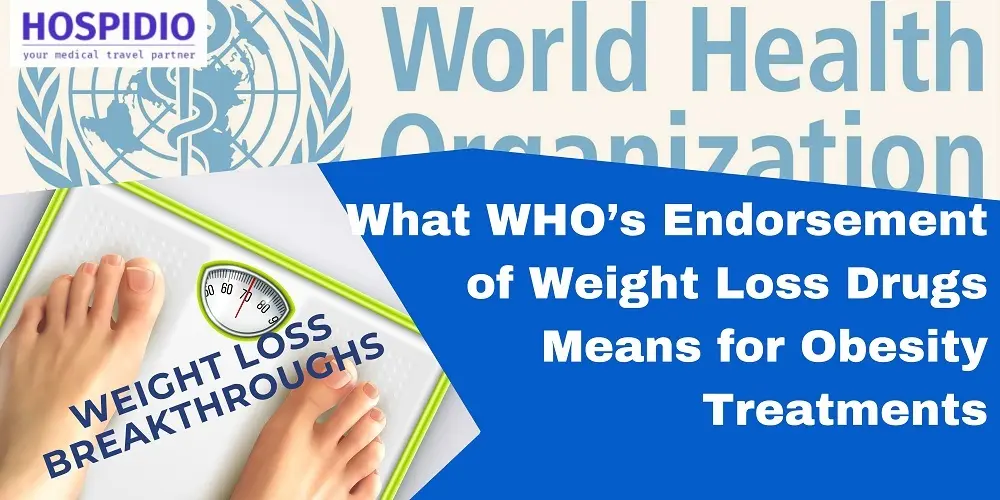The global obesity crisis has long demanded innovative solutions, and the recent endorsement by the World Health Organization (WHO) of weight loss drugs such as GLP-1 receptor agonists marks a significant step forward. These medications, known by brand names like Wegovy and Mounjaro, have shown transformative potential, opening doors to managing and potentially reducing the global obesity pandemic. However, WHO experts emphasize that while these drugs are promising, a comprehensive approach that includes lifestyle modifications, equitable access, and recognition of obesity as a chronic disease remains crucial.
Complications of Obesity and the Importance of Weight Loss
Obesity is a complex condition that significantly increases the risk of numerous health complications. It is a leading cause of chronic diseases such as Type 2 diabetes, hypertension, cardiovascular disease, and certain types of cancer. Additionally, obesity can contribute to sleep apnea, joint problems, and mental health conditions like depression and anxiety. These complications not only reduce life expectancy but also severely impact quality of life, creating a substantial burden on individuals and healthcare systems worldwide.
Effective weight management is critical to mitigating these risks. Beyond improving physical health, weight loss can enhance mobility, boost self-esteem, and reduce the economic and social costs associated with obesity-related illnesses. By addressing the root causes and adopting sustainable solutions, individuals can achieve lasting health benefits and significantly improve their overall well-being.
Transformative Potential of Weight Loss Drugs
According to WHO’s chief scientist Jeremy Farrar and other experts, these weight loss jabs could revolutionize how obesity is treated. Traditional interventions like diet and exercise, while effective in promoting general health, have not significantly curtailed obesity rates worldwide. By combining these strategies with advanced medications, healthcare providers could achieve better outcomes. More than a billion people globally are obese, contributing to over 5 million obesity-related deaths in 2019. These numbers underline the urgency of integrating innovative therapies into public health frameworks.
Get a free cost estimate
Challenges and Risks
Despite their promise, these drugs present challenges. WHO has raised concerns that without proper preparation, health systems might rely too heavily on medications, overshadowing holistic approaches like healthy eating and physical activity. Moreover, the cost and availability of these drugs could create disparities, especially in low-income countries. Addressing obesity as a chronic disease necessitates a public health model that integrates medication with preventive measures and clinical care.
The WHO is also developing guidelines for using these drugs in adults, particularly in low and middle-income countries, with recommendations expected by July 2025. Ensuring affordable access and equitable distribution will be key to maximizing the benefits of this breakthrough.
Weight Loss and Beyond: Comprehensive Solutions
Weight loss medications alone cannot address the complexities of obesity. Many individuals opt for surgical interventions, such as gastric sleeve and gastric bypass procedures, when lifestyle changes and medications are insufficient. These bariatric surgeries offer long-term weight management solutions by reducing stomach size and altering digestion to limit calorie absorption.
- Gastric Sleeve Surgery: Gastric Sleeve Surgery removes a portion of the stomach, resulting in a smaller, sleeve-shaped stomach. Patients typically experience significant weight loss and improvements in obesity-related conditions such as diabetes and hypertension.
- Gastric Bypass Surgery: Gastric Bypass Surgery creates a small stomach pouch and reroutes the digestive system. It not only promotes weight loss but also has profound metabolic effects, improving or resolving conditions like Type 2 diabetes.
Both surgeries have proven effective, particularly for individuals with severe obesity or obesity-related health complications. Patients considering these options should consult experienced surgeons and accredited healthcare facilities to ensure optimal outcomes.
Moving Forward: A Holistic Approach
While the introduction of GLP-1 receptor agonists is a significant milestone, addressing obesity requires a multifaceted approach. Policymakers, healthcare providers, and pharmaceutical companies must collaborate to integrate these drugs into broader health initiatives. At the same time, promoting awareness about surgical and lifestyle interventions ensures patients have access to tailored solutions that best meet their needs.
As the WHO prepares to release comprehensive guidelines and the world embraces the potential of these groundbreaking therapies, the fight against obesity enters a hopeful new phase. Combining medical innovation with equitable access and preventive strategies offers the best chance to curb the global obesity epidemic and improve millions of lives.
For more information about weight loss procedures like gastric sleeve and gastric bypass, contact us at [email protected] 0r +91-9319955321.
Himang
Author
Himang Gupta is a skilled medical content writer with a Bachelor's degree in Biotechnology and extensive experience crafting engaging and informative blogs. Passionate about simplifying complex medical topics, he ensures his content resonates with readers. When not researching or writing, Himang enjoys scrolling Instagram, cracking jokes, and savoring the flavor of elaichi—his ultimate treat after a productive writing session.
Guneet Bindra
Reviewer
Guneet Bhatia is the Founder of HOSPIDIO and an accomplished content reviewer with extensive experience in medical content development, instructional design, and blogging. Passionate about creating impactful content, she excels in ensuring accuracy and clarity in every piece. Guneet enjoys engaging in meaningful conversations with people from diverse ethnic and cultural backgrounds, enriching her perspective. When she's not working, she cherishes quality time with her family, enjoys good music, and loves brainstorming innovative ideas with her team.

